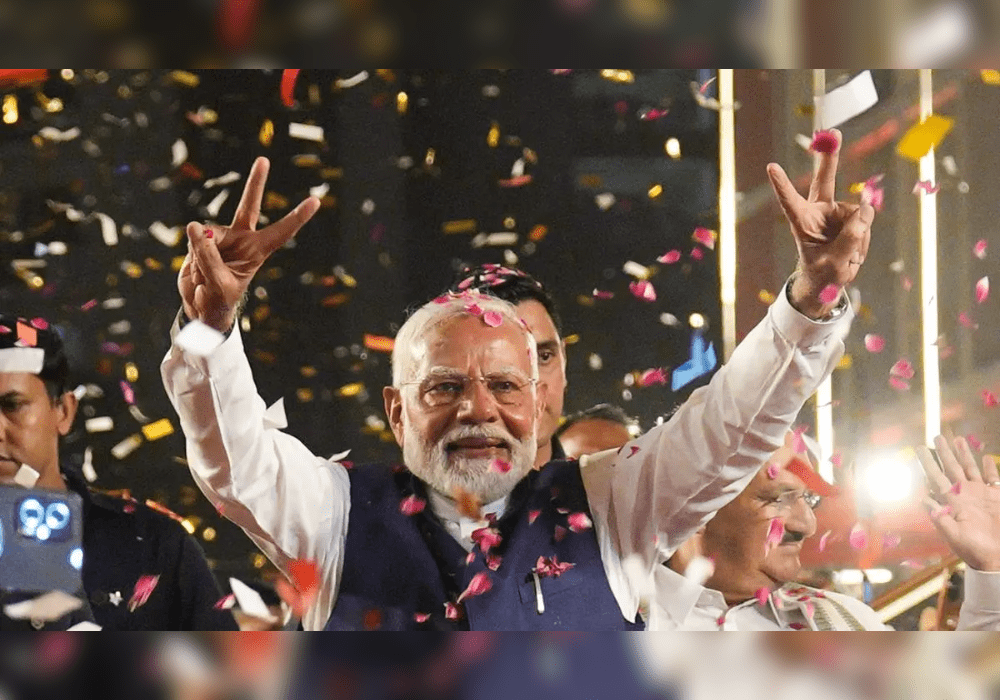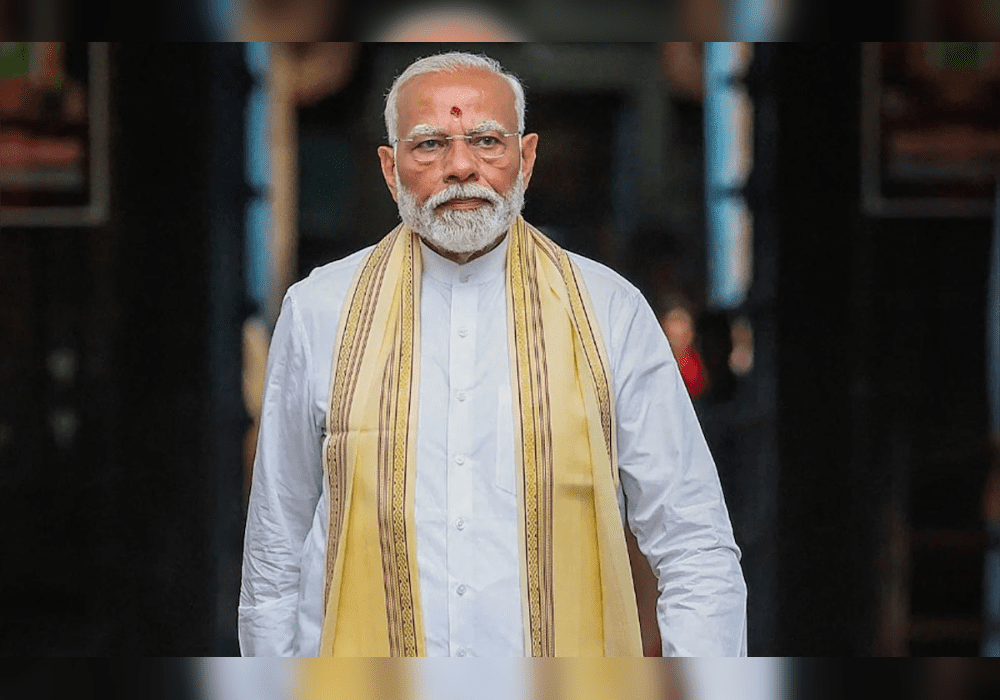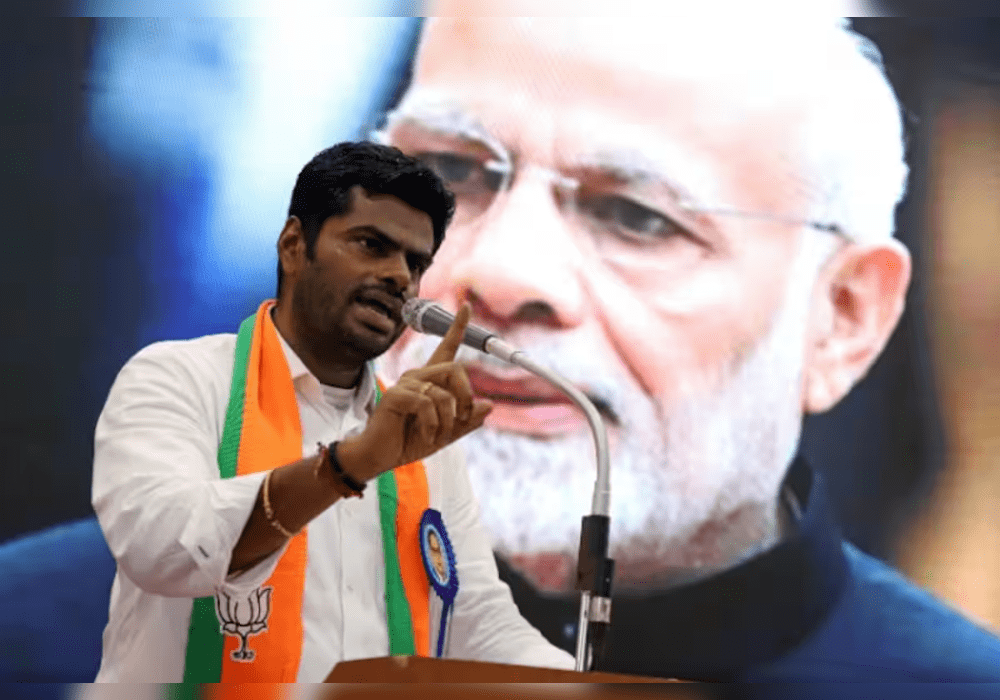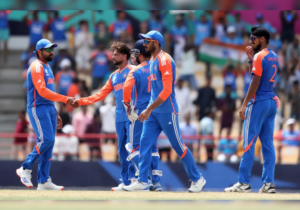
PM Modi Wins Third Term: In the general elections of 2024, the National Democratic Alliance (NDA), led by the Bharatiya Janata Party (BJP), won a historic third straight term. This is the first time a government has been re-elected for three terms since 1962. In the Lok Sabha, the BJP secured 240 seats, falling shy of the 272 majority needed, but comfortably ahead of the opposition INDIA alliance, which garnered 232 seats. The NDA gained 293 seats.
Table of Contents
International Media Response
The global media has reported the election results with varying perspectives. The Washington Post described the outcome as an “unexpected repudiation” of Prime Minister Narendra Modi’s leadership, piercing his “aura of invincibility.” The American daily noted that for the first time in years, Modi seemed vulnerable. The Guardian reported that the landslide for the BJP, as predicted in polls, had not materialized. Instead, there was a pushback against the strongman prime minister and his Hindu nationalist politics in several parts of the country.
As per the BBC, the Lok Sabha elections are perceived as a referendum on Prime Minister Modi’s ten-year tenure, and he is expected to secure a smaller majority. Reporters noted the intense campaign waged by the opposition parties against the BJP and reported the depressing atmosphere at BJP offices across the nation. Ten years into his transformative tenure, the New York Times reported that the air of invincibility surrounding Narendra Modi has been destroyed, characterizing the results as unexpectedly grim and a sudden reversal.
Post-Election Developments
Following the election results, Prime Minister Narendra Modi tendered his resignation along with the Union Council of Ministers to President Droupadi Murmu on June 5. The President accepted the resignation and requested Modi and the Council of Ministers to continue in office until the new government is formed. The term of the current Lok Sabha ends on June 16.
The NDA parties held a meeting on June 5, where they unanimously elected Modi as their leader. The NDA is committed to serving the poor, women, youth, farmers, and exploited, deprived, and oppressed citizens of India. The Opposition INDIA bloc also held a meeting, stating that the mandate was decisively against Modi and the substance and style of his politics.

International Congratulations
U.S. President Joseph Biden and his Russian counterpart Vladimir Putin joined leaders of more than 50 countries in congratulating Prime Minister Narendra Modi and the National Democratic Alliance (NDA) on their victory. Along with Biden, PM Modi received congratulatory messages from Australia, Bangladesh, Nepal, China, Russia, Ukraine, Mauritius, Maldives, France and many other nations.
Government Forming
The process of government formation for PM Modi’s third term was set in motion on June 5, with the parties of the NDA unanimously passing a resolution electing Mr. Modi as their leader in a meeting at the PM’s official residence. In all, 21 NDA leaders signed the resolution. The swearing-in ceremony of Prime Minister Narendra Modi is likely to happen over the weekend.
Election Highlights
The BJP suffered severe defeats in many states across the nation during the election, including Uttar Pradesh, Maharashtra, Haryana, Rajasthan, and Karnataka. Additionally, the party’s vote share decreased little, from 37.7% to 36.57%. In Uttar Pradesh, where they had won 62 seats in 2019 and 71 seats in 2014, the BJP suffered the biggest setback. The party won and led in just 33 seats, nearly halving its numbers.
In Maharashtra, the BJP’s tally came down to 9 from 23, and in Rajasthan, it had 14 seats instead of the 25 it had won in 2019. In Karnataka, the BJP’s tally came down to 17 from 25, and in Haryana, they lost 5 of the 10 seats they had won. In West Bengal and Bihar, the BJP suffered reverses, winning only 12 seats in Bihar, down from 17, and 12 seats in West Bengal, down from 18.
The BJP’s dependence on its allies, particularly the TDP and JD(U), is now a reality. While the TDP was ahead in 16 seats, and the JD(U) led in 12, veterans like Naidu and Kumar are set to emerge as decisive political players at the Centre.
Lok Sabha Polls 2024: Voter Turnout In Six Phases, Alarming!
South Conundrum Continues
In the South, the BJP opened its account in Kerala and doubled its tally from 4 to 8 in Telangana. In Tamil Nadu, where the BJP was projected to pick up some seats, they could win none, but their vote share crossed the 11% mark compared to 3.62% last time. In Andhra Pradesh, the BJP led in 3 seats, up from zero last time, while three regional parties, the BJD, BRS, and BSP, faced a rout.
With former chief minister Shivraj Singh Chouhan leading by a staggering margin of more than 8.21 lakh votes, the BJP was sweeping the state of Madhya Pradesh. Of the 26 seats in Gujarat, the BJP held a majority in 25 of them.

Prospective Consequences
There could be a change in Modi’s leadership style due to the diminished majority and the requirement for coalition cooperation. The author of a biography on Modi, Nilanajan Mukhopadhyay, discussed the possible ramifications of this new dynamic with the AFP news agency. “We shall see more democracy and a healthy parliament,” he stated. “He will have to be a leader that he has never been; we will have to see a new Modi.”
The outcome of the election has created a more complicated political environment in India, where the NDA government must now weigh its own goals against those of its coalition partners. How Modi handles this new dynamic and directs India’s development will be shown in the future.
PM Modi Wins Third Term: Conclusion
A turning point in the political history of India was reached with the general elections of 2024. Despite being historic, the NDA’s victory wasn’t without its difficulties. Significant defeats for the BJP occurred in a number of crucial states, and the party’s vote share decreased marginally from earlier elections. Modi’s leadership style may change as he negotiates a more complicated political environment as a result of the diminished majority and the requirement for coalition backing.
The NDA is still dedicated to helping the Indian people and advancing their nation’s growth in spite of these obstacles. The outcome of the election has demonstrated that, despite their demands for accountability and response from their leaders, the Indian population prefers continuity and stability.
The election results have elicited a varied response from the international media. Certain sources have expressed astonishment at the BJP’s diminished majority and the opposition to Modi’s autocratic policies. Nonetheless, the overwhelming view is that the NDA has been handed a mandate to govern for a another five years, indicating that the Indian people have spoken.
Prime Minister Modi has a difficult task ahead of him as he gets ready to assume office for a third term, including combating the COVID-19 pandemic and recovering the economy. His followers, nevertheless, continue to have faith that he possesses the foresight and the leadership abilities to guide India through these trying times and come out stronger than before.
In conclusion, the 2024 Indian general elections have been a testament to the resilience of India’s democracy and the power of its people. The NDA’s victory, while historic, is just the beginning of a new chapter in India’s journey towards greatness.





